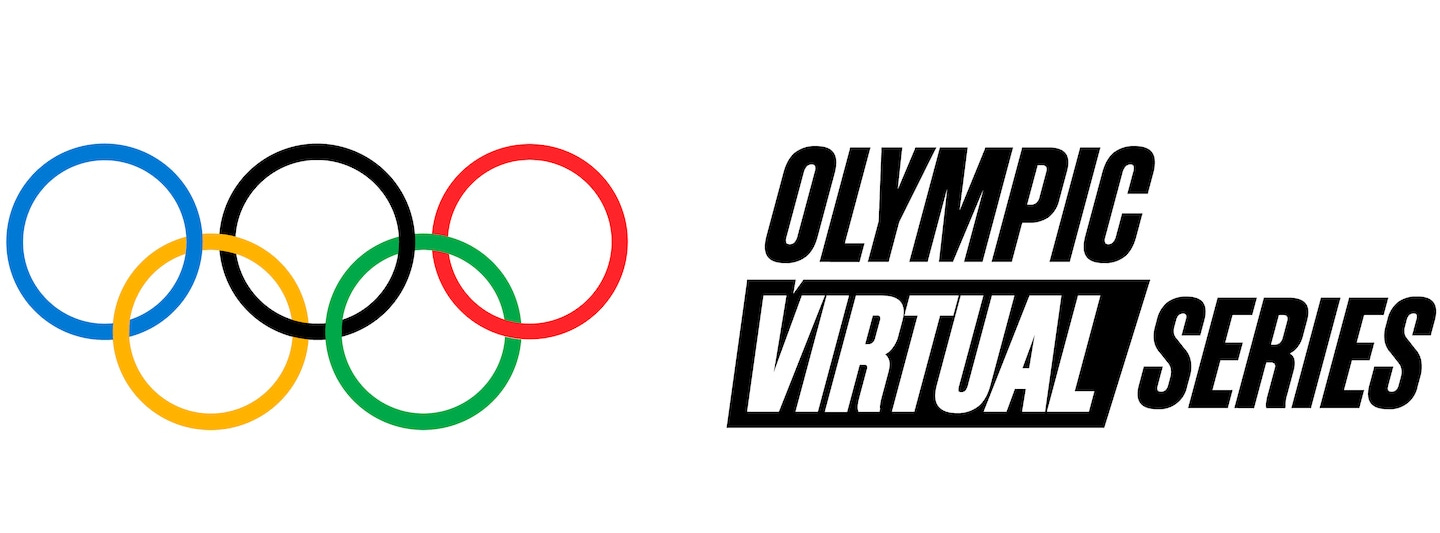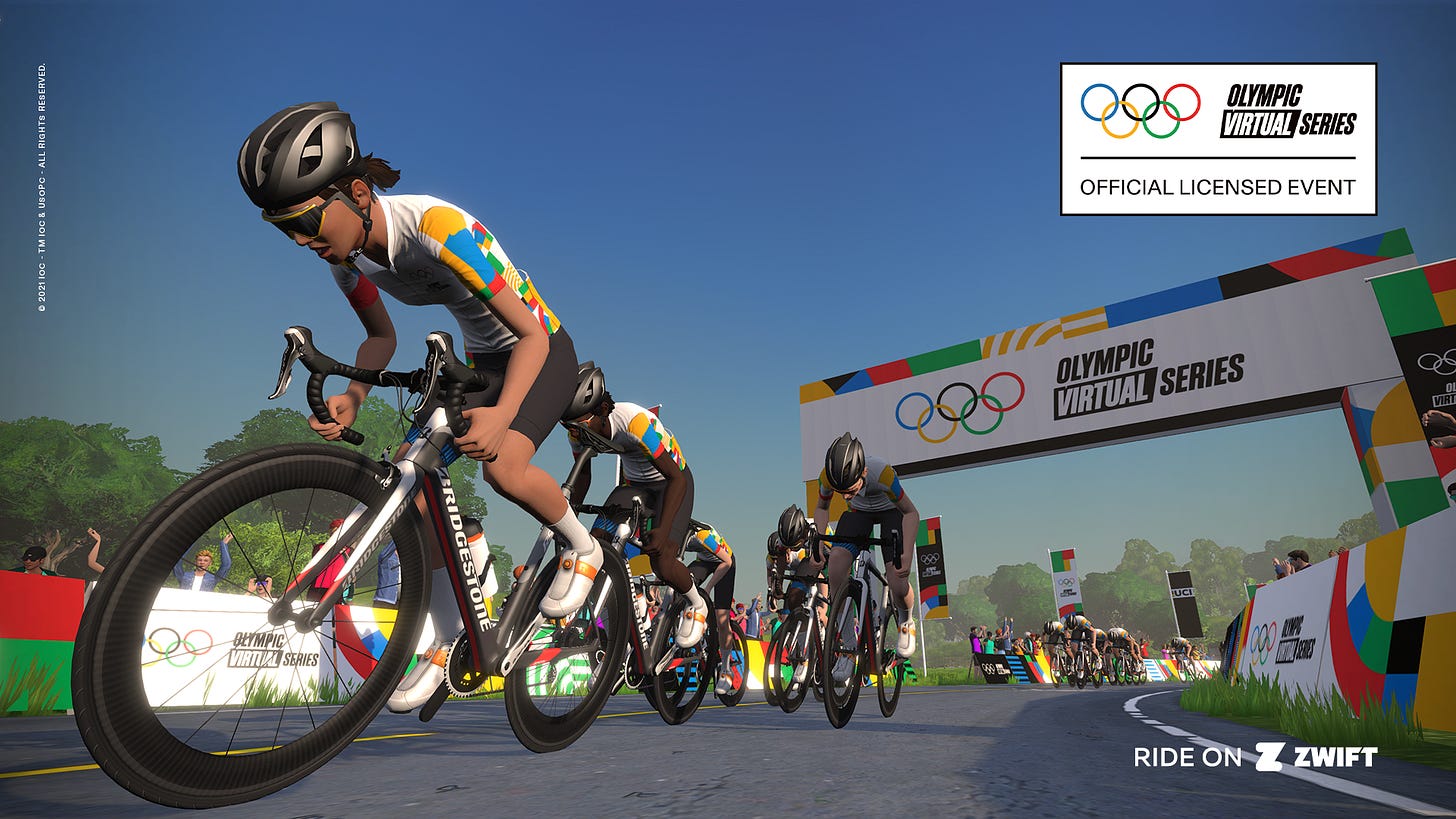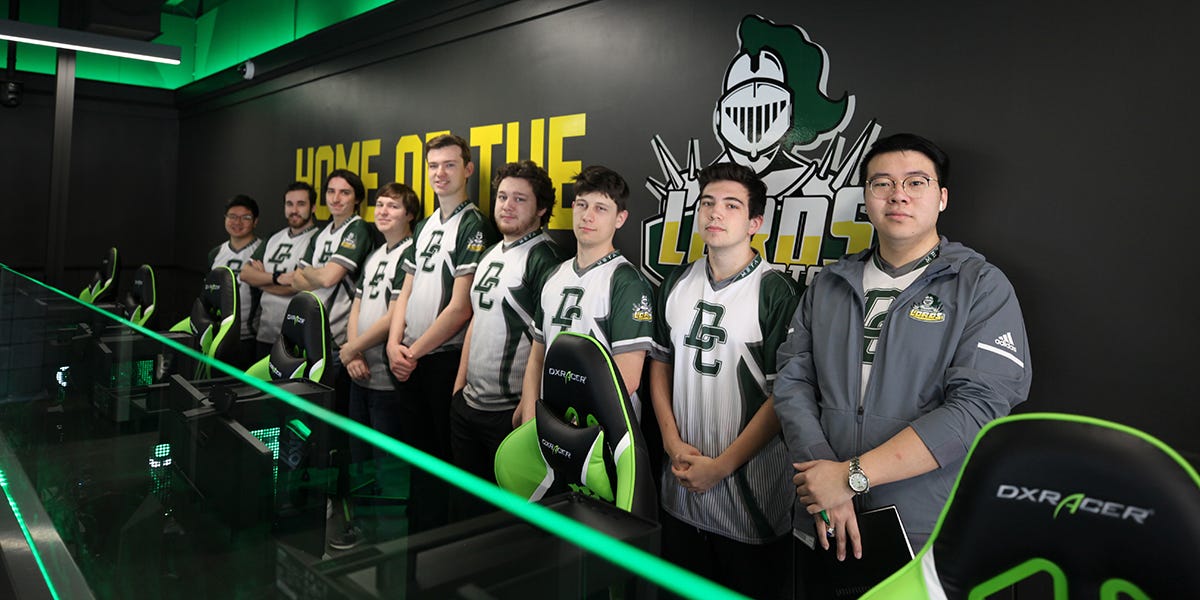Welcome to a new episode of Year 2049, your weekly guide to the events, discoveries, and innovations shaping the future of tech, climate, science, and more.
If this was forwarded to you, subscribe to get a new story in your inbox every Friday 👇
Happy New Year!
I hope you all had a relaxing break and are keeping up with your New Year’s resolutions. I’ve got lots of interesting topics lined up for 2022 and I can’t wait to share them with you every week!
To kick off the year, let’s talk about the most iconic and prestigious sporting competition in history: the Olympics 🥇. What started as a single-race event in Ancient Greece is now a competition with over 30 different sports.
And there’s a new type of sport on the rise, slowly making its way into the Olympics: video games. Will video games become Olympic sports in the future?
Let’s find out…
This week’s comic
What we’re covering today:
The International Olympics Committee’s new Olympic Virtual Series
Are video games “real” sports?
The rise of esports in schools, universities, and pro sports leagues
Why an esports Olympics makes sense
The challenges of creating an esports Olympics
The backstory
The IOC is dipping its toes in virtual sports
The International Olympic Committee (IOC) organized its first Olympic esports events, called the Olympic Virtual Games, ahead of the Summer Olympics in Tokyo last year.
The events featured competitions in auto racing, baseball, cycling, rowing, and sailing. But instead of athletes competing in real life, they were competing in video games. For example, the auto racing competition was held on Gran Turismo, one of the most popular racing games.
If you’re curious, here’s a video of the cycling event.
Although the winners didn’t receive gold medals, virtual sports are an important part of the IOC’s strategic roadmap. In the Olympic agenda for 2025, one of the recommendations involves esports:
Encourage the development of virtual sports and further engage with video gaming communities
– International Olympic Committee, Olympic Agenda 2020+5
The rise of esports
Whether esports are “real” sports or not, nobody can deny their increasing popularity.
Education
Esports have become part of the education system in countries like the US, China, Sweden, and Norway.
High schools have started creating their own esports varsity teams to play popular games like Rocket League and League of Legends against each other.
Treated like any other sport: the teams have coaches, regular practices, and compete in tournaments against other schools.
Training platforms: Startups like PlayVS help high schools track their players’ performances and stats, and plan on creating a recruiting tool for colleges and universities in the near future.

Universities are also embracing esports:
Teams: colleges and universities are also building their own esports varsity teams. In China, over 900 universities have competitive esports teams.
Scholarships: students can get esports scholarships and compete in their school’s team the same way a basketball player would. In the US, $16 million in scholarships and aid are exclusively reserved for esports players (NACE).
Degrees and Programs: schools are offering esports-focused degrees such as Kajaani University’s Bachelors of esports Business in Finland. Although this is focused on the business side rather than gaming, it’s a sign of the rising career opportunities in the gaming industry.
Professional sports leagues
What better validation for esports than getting the stamp of approval from the world’s biggest sports leagues?
The English Premier League created the ePremier League where the same teams that compete on the field every weekend also compete on FIFA, the popular football game. That gives Manchester United one more competition to disappoint me in.
Formula 1 created the F1 Esports Series where teams also compete in their F1 video game. Thankfully, there’s no virtual Michael Masi to ruin races like in Abu Dhabi.
As someone who doesn’t watch esports a lot, I’ve seen a few ePremier League matches and they were extremely exciting to watch.
Audience and engagement
By 2024, it’s expected that esports will have an audience size of 570+ million. This viewership is spread across multiple games so it would be misleading to compare it to a single sport or league.

Further reading: Esports Ecosystem 2021: The key industry companies and trends growing the esports market
Why an esports Olympics makes sense
Last year’s Tokyo Olympics had an estimated 3 billion unique viewers. That’s a lot of people, but it’s lower than the 3.6 billion who watched the 2016 Rio Olympics.
This can be attributed to many reasons like timezone differences, the pandemic, or high-profile athletes not attending. But it could also mean that some revitalization needs to happen.
If we have Winter Olympics and Summer Olympics, why not an esports Olympics for the global and growing audience of esports fans?
The prestigious brand of the Olympics: The historic brand and appeal of the Olympics is unique and recognized around the world. When you think of the Olympics, you think of excellence.
Appeal to younger generations: With decreasing viewership, the Olympics can revitalize itself by creating a new competition for the passionate esports fans.
More entertainment and competition: Having the best gamers in the world battling in the most popular games over the course of a month will be incredibly exciting for fans.
Challenges of creating an esports Olympics
An esports Olympics sounds exciting in theory, but there are a few challenges before it can become a reality:
Video games are violent: Some of the most popular games like Fortnite and Warzone involve weapons and shooting. Some argue that it doesn’t align with the “values of the Olympics”. Neutral games that resemble traditional sports, like Rocket League, will have an easier path into the Olympics.
Although this is a valid concern, some Olympic games are deeply rooted in violent and war-like activities like javelin-throwing, fencing, and shooting.
Video games are owned by companies: Sports like football and basketball are overseen by international federations like FIFA and FIBA, but video games aren’t. This can affect the neutral nature of traditional Olympic sports and make them feel too commercial.
However, the Olympics are a commercial and advertising bonanza and we see sponsors everywhere anyway. An esports Olympics will incentivize game publishers to invest and create high-quality and exciting games because their reputation is on the line.
Final thoughts
The International Olympics Committee will keep hosting esports events through its Virtual Series in the next few years. The success of those events will be determined by what games they decide to include.
The “safe” path would be to include exact replicas of traditional sports as they did with the cycling and rowing events in 2021. But I think this approach won’t appeal to traditional sports fans who prefer to watch the real thing or esports fans who prefer watching their favourite video games.
The best approach would be a separate Olympics just for esports, and maybe this is what the current Olympic Virtual Series will evolve into.
For all their similarities, esports and traditional sports are different, in a good way. Both have their own cultures, audiences, communities, and histories. To celebrate their uniqueness, they deserve their own stage so we can enjoy each spectacle on the biggest stage in the history of sports.
With or without the IOC, the esports industry is more than capable of organizing their own Olympics: they have the brand power, exciting games, and millions of devoted fans. If anything, the IOC needs esports more than esports needs the IOC.
A question for you
Does the Olympics risk its reputation by hosting esports events with “violent” games?
Share your thoughts by leaving a comment 👇
Help me spread the word
Doing the research, learning about new topics, drawing comics, and writing this newsletter has been an absolute joy for me every week.
This edition took 9 hours to make, so I would appreciate it if you took a minute to invite your family and friends to subscribe to Year 2049 and stay informed about the events, discoveries, and inventions shaping our future.
or send them this link: https://year2049.substack.com/welcome
If you missed the previous episode
or check out all previous Year 2049 episodes.
Recommendation of the week
My friend Mark Starlin writes a very fun newsletter that he sends out every Monday morning.
Each edition is a surprise: there’s a short humour story, a microfiction story, and a longer story. If you want something fun to start your week with, you can subscribe to Mark’s newsletter here.
How would you rate this week's edition?
















The real competition is in developing the games, a bit of which is represented in the 2012 documentary "Indie Game: The Movie"
"I was actually really worried that either Tommy or I would die in the process of making this.”
—game developer
https://moviewise.wordpress.com/2012/12/28/indie-game-the-movie/
The point about games being owned by companies is interesting. Another consequence of that is that Epic might update Fortnite tomorrow with some changes to the game mechanics, which players would then need to learn and adapt to. Physical sports occasionally have their rules changed, but the physics involved never changes.